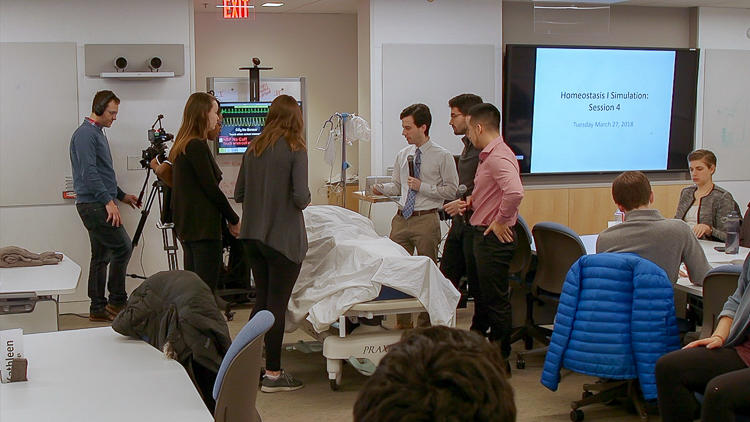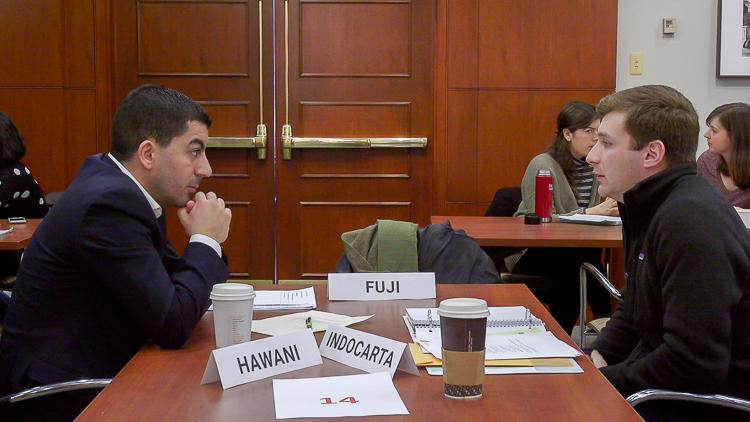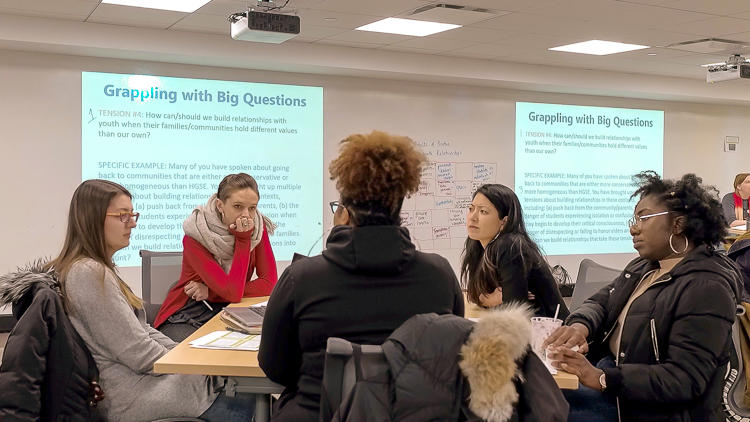Todd Rakoff points out that having students take a position they don’t necessarily agree with can make discussions less personal and invite broader participation. Additionally, employing small group discussions can be a powerful tool for amplifying diverse viewpoints. In this video, when Rakoff sends students on their way to talk through court cases, the room transforms into a flurry of energy and lively deliberation. Rakoff uses informal and formal role plays, questioning strategies, and an even-handed tone to solicit and affirm alternative perspectives in discussion.
Considering other perspectives through role plays
Instructor
Todd Rakoff, Byrne Professor of Administrative Law
Student Group
Graduate
School
Harvard Law School
Course
Legislation & Regulation
Group Size
80 students
Additional Details
First-year requisite
- Give careful thought to which texts you select to teach. Supplement dominant, Eurocentric perspectives by presenting alternative viewpoints.
- Use role plays so students can consider issues from alternative points of view
- Push students to both articulate and scrutinize counter-arguments
- Consider carefully the examples and language you use to explain concepts
- Administer class votes and polls throughout lessons to gain a broader understanding of what students are thinking in real-time
- Research indicates that peer dialogue enriches student understanding (Smith et. al., 2009)
- An examination of web-based discussions concludes that student contributions differ according to race and, more broadly, that integrating a range of perspectives into discussions can lead to more critical thinking (Pitt & Packard, 2012)
- Northedge argues for a pedagogical shift in which, through instruction, professors immerse students in new, unfamiliar knowledge communities to expose them to diverse perspectives (2010)
- Harvard’s Derek Bok Center for Teaching and Learning offers “Ten Strategies for Effective Discussion Leading”
- An article from Life Sciences Education outlines a wealth of practices to help students become more active listeners




